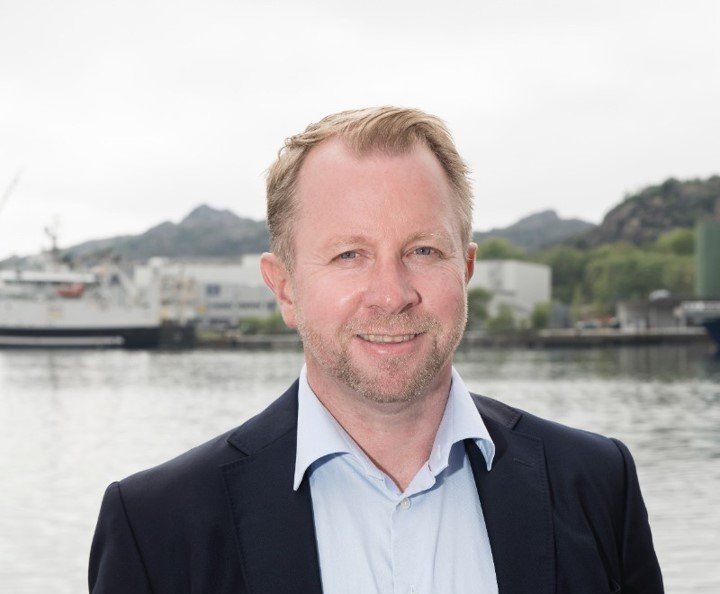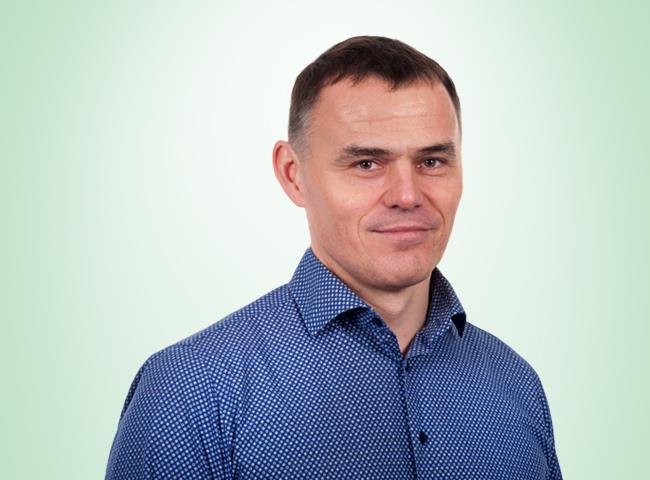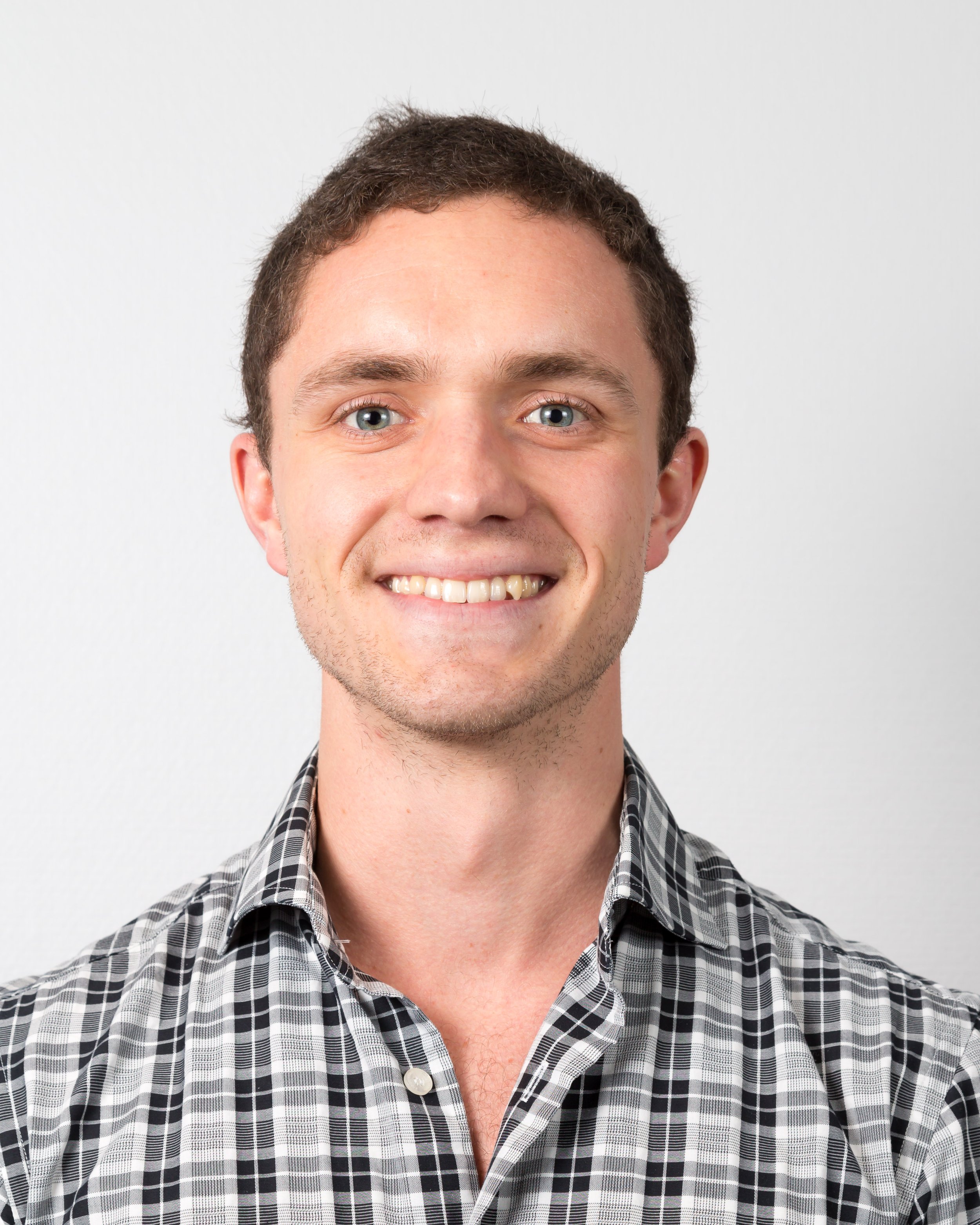Cluster Catch-Up: Teco 2030
“Sustainability is at the heart of everything we do, and our primary focus is to develop new technology that will help the international maritime industry become more sustainable.”
Tore Enger, Group CEO in Teco 2030
Cluster Catch-up is a column where we ask our members 6 questions to catch a glimpse into their daily business life.
In the last Cluster Catch-up, Tomas Fiksdal in Greenstat sent the baton over to Teco 2030. This time we spoke with Tore Enger, Group CEO, to learn more about the daily life of the company. Tore Enger founded TECO Group in 1994 and has since initiated a large number of products and services in the maritime industry.
1. What is Teco 2030’s primary focus right now?
TECO 2030 focuses on one of the biggest environmental challenges of our time: How can we combine ever-increasing shipping volumes with reduced emissions? At TECO 2030, we believe that innovative technologies can reduce the environmental and climate footprint of the shipping industry even as freight volumes increase. Our primary focus is to develop new technology that can help the maritime industry cut its greenhouse gas emissions, reduce its dependency on fossil fuels and switch to climate-friendly green hydrogen, which is hydrogen produced by renewable energy.
The International Maritime Organization aims to cut CO2 emissions from international shipping by 40% by 2030. Across the world, shipping companies will therefore have to do something to make their vessels more climate friendly, and we at TECO 2030 want to help them with that. Our company is called TECO 2030 to demonstrate our commitment to the climate targets. We aim to help the maritime industry become better for both the environment and the climate by delivering both emissions reduction and zero emission systems tailored to their needs. Our ambition is to enable the shipping industry to continue to grow, while at the same time reducing its emissions and its environmental footprints.
2. What are the biggest challenges and opportunities for Teco 2030 in the future?
The biggest challenge we are facing now is to reach successful operation of our planned gigafactory and innovation centre in Narvik in Northern Norway. The opportunities within the fuel cell market are endless, as there are thousands of ships – that are currently operating on fossil fuels – that will need to reduce their environmental impacts. Another big challenge for us is that it is still early days for the hydrogen industry, which means that there is currently not enough infrastructure in place to ensure that ships can easily fill up their tanks with hydrogen whenever they want. Until hydrogen filling stations have been widely developed, ships will not be able to rely on hydrogen as a fuel and will therefore not be able to use hydrogen fuel cells.
3. How can hydrogen be a part of the solution for the future?
The solution to decarbonising the maritime industry is new technology that that will put an end to the industry’s dependency on fossil fuels. We believe that green hydrogen will be key to reducing emissions from the maritime sector, and that all ships will eventually become emissions-free. A switch from fossil fuels to hydrogen will not just be good for the climate because it will lead to lower greenhouse gas emissions. It will also lead to less pollution and fewer oil spills and improve life both on land and in the ocean.
TECO 2030 will provide the technology the ships need to switch to hydrogen, and we will, by doing this, contribute to the green transition within the maritime industry. We believe that hydrogen fuel cells are the engine of tomorrow and that they will be key to reducing the environmental footprint of the maritime industry, especially for ships for which batteries will be too heavy. We are therefore now developing hydrogen fuel cells together with our strategic partner AVL, which has more than 18 years of experience in the fuel cell industry.
We will launch our TECO 2030 Marine Hydrogen-based Fuel Cells towards the end of 2022. These will enable ships and heavy-duty applications to switch from fossil fuels such as heavy oil and diesel to climate-friendly, green hydrogen, and thereby reduce their greenhouse gas emissions to zero. Hydrogen fuel cells are like batteries that do not need to be charged. They function almost the same way as normal diesel engines but use hydrogen as fuel instead of traditional fossil fuels. Fuel cells do not produce any greenhouse gas emissions and convert hydrogen into electricity while only emitting water vapor and hot air.
4. What is your primary focus when it comes to sustainability?
Sustainability is at the heart of everything we do, and our primary focus is to develop new technology that will help the international maritime industry become more sustainable. With sustainability as our purpose, it determines what business we do, and it also influences how we do business. TECO 2030 is a young company and was established in autumn 2019 and became listed on Euronext Growth on Oslo Stock Exchange in October 2020. We published our first sustainability report in May this year and will from now on publish sustainability reports every year. It is important to us to conduct our business in a sound and ethical manner, and our values express the ideas we strive to live up to in our decisions, actions and the way we interact with others. As a young company, we are continuously developing and improving.
Going forward, we will continue to incorporate sustainability into our management processes, and we will advance our sustainability reporting. We have developed a Code of Conduct which will soon be published on our website. The code determines how everyone working for or on behalf TECO 2030 should conduct business, and covers amongst other topics, anti-corruption and bribery, anti-competitive behaviour and environment, human and labour rights. Our employees are the reason for the company’s success, and securing their health and well-being is our highest priority. We thrive on having an inclusive work environment which values and encourages diversity, collaboration and continuous learning. We believe that diversity strengthens both our culture and our results, and we are proud of having such a diverse workforce, with around 20 employees from nine different countries.
5. Why did you decide on becoming a member of Ocean Hyway Cluster?
TECO 2030 believes collaboration is necessary if we are to reach our common goals of reducing greenhouse gas emissions. The membership in Ocean Hyway Cluster will open new opportunities for us to engage with partners through the various possibilities offered within the cluster and to its members. TECO 2030 strongly believes that the whole value chain must coordinate their developments if we are to succeed in making the maritime industry better for the climate and the environment. Through the cluster, all parties involved are informed about the latest developments within the sector, including ongoing timelines and developments, and this is in our view vital if we are to develop an effective hydrogen community.
Cluster Catch-up is taking a summer break and will be back in August with a new interview of a member. Have a nice summer!
Teco 2030 is a member of Ocean Hyway Cluster. Are you curious about a membership? More information here.






















